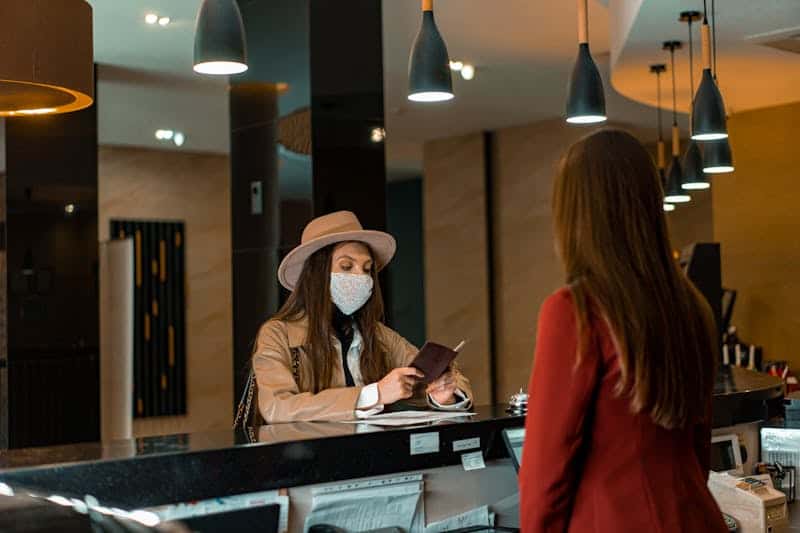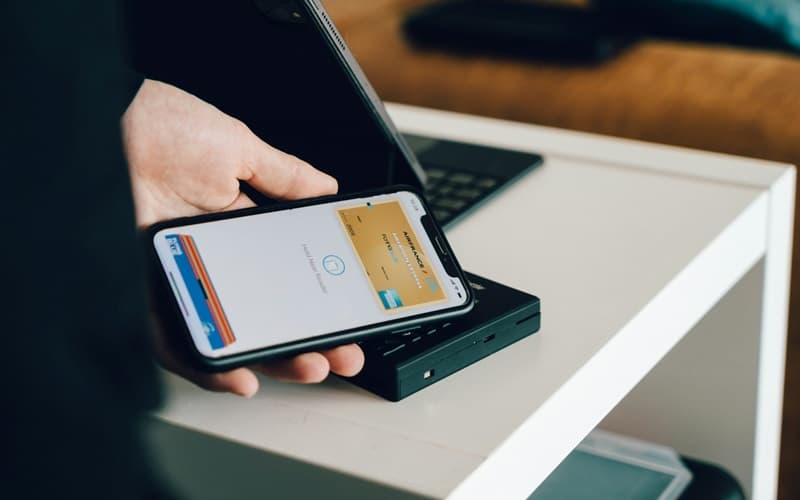Can I Check Into a Hotel with Someone Else’s Credit Card?
Imagine this scenario: you’re on a business trip or a vacation, and you arrive at your hotel, ready to check in. But when you reach for your wallet, you realize you’ve left your credit card at home.
Panic sets in, but then you remember that your friend or colleague has offered to let you use their card for the hotel stay. But can you actually check into a hotel with someone else’s credit card?
If you’re short on time, here’s a quick answer to your question: In most cases, you can check into a hotel with someone else’s credit card, but there are certain rules and restrictions that apply.
In this comprehensive article, we’ll explore the legalities, policies, and best practices surrounding the use of someone else’s credit card for hotel stays. We’ll cover topics such as authorization requirements, potential fees, and tips for a smooth check-in process.
Whether you’re a frequent traveler or simply facing an unexpected situation, this guide will provide you with valuable insights to navigate this scenario successfully.
Understanding Hotel Policies on Third-Party Credit Card Use
When planning a trip, one crucial aspect to consider is the payment method you’ll use for hotel bookings. While it’s common practice to use your own credit card, there may be instances where you need to use someone else’s card, such as a friend’s or family member’s.
However, it’s essential to understand that hotels have varying policies regarding the use of third-party credit cards.

Hotel Chain Policies
Major hotel chains often have strict policies in place regarding the use of third-party credit cards.
For example, Marriott International states on their website that it is possible to book a room for someone else. Hence, they can accept credit cards in the name of the person making the reservation, who may not be the intended guest staying at the hotel. On the other hand, Hilton requires that the credit card used for payment matches the name on the reservation.
It’s worth noting that some hotel chains may allow exceptions on a case-by-case basis, but these exceptions are typically reserved for corporate accounts or travel agents.
For instance, Hyatt mentions that they accept third-party credit cards in some of their properties, and you may pay for another person’s hotel room with your own credit card. However, in these cases, one is required to submit the Hyatt Credit Card Authorization Form.
Independent Hotel Policies
Independent hotels, on the other hand, may have more flexible policies when it comes to third-party credit card use. These hotels often operate under their own rules and regulations, which can vary from one establishment to another.
Some independent hotels may allow guests to use a third-party credit card as long as the cardholder provides written authorization and a copy of their identification.
However, it’s crucial to inquire about the specific policies of the independent hotel you plan to stay at before making a reservation. Many hotels will require the cardholder to be present at check-in or provide additional documentation to verify their identity and authorization for the transaction.
Potential Fees and Surcharges
Even if a hotel allows the use of a third-party credit card, there may be additional fees or surcharges involved. Some hotels may impose a credit card processing fee or a higher incidental hold on the credit card to mitigate potential risks.
According to Hotel Tech Report, around 15% of hotels charge a credit card processing fee, with the average fee being as high as 3.5% of the total transaction amount. It’s essential to inquire about these potential fees and surcharges before making a reservation to avoid any unexpected charges.
Additionally, hotels may require a higher security deposit or incidental hold on the credit card to cover any additional expenses incurred during your stay, such as room service or minibar charges.
Remember, while using a third-party credit card for hotel reservations may be convenient in some situations, it’s crucial to understand and comply with the hotel’s policies to ensure a smooth and hassle-free stay.
Legal Considerations and Authorization Requirements
Credit card fraud laws
Using someone else’s credit card without their explicit permission is considered credit card fraud, which is a criminal offense punishable by law. According to the Federal Trade Commission, credit card fraud accounted for 35% of all reported identity theft cases in 2021, with losses amounting to billions of dollars.
It’s crucial to understand that misusing a credit card, even if you intend to pay the charges later, can still be considered fraud and result in severe legal consequences. 😬

Authorization forms and documentation
To legally use someone else’s credit card, you must have explicit authorization from the cardholder. Most hotels require a credit card authorization form to be completed and signed by the cardholder, granting you permission to use their card.
This form typically includes the cardholder’s name, credit card number, expiration date, and the dates for which the authorization is valid. It’s essential to provide a copy of the cardholder’s government-issued ID to verify their identity. 👌
Some hotels may also require additional documentation, such as a letter of authorization from the cardholder or a power of attorney document if the cardholder is not present. The requirements can vary depending on the hotel’s policies and the specific circumstances.
It’s always a good idea to check with the hotel in advance to ensure you have all the necessary documentation. 📝
Liability and responsibility
Even with proper authorization, using someone else’s credit card comes with significant responsibilities. As the authorized user, you are legally responsible for all charges incurred during your stay. If any disputes or issues arise, the cardholder may hold you liable for the charges, and you could face legal consequences if you fail to settle the bill.
Additionally, if the credit card is lost, stolen, or used fraudulently during your stay, the cardholder may face financial losses and potential damage to their credit score. It’s crucial to handle the credit card with utmost care and responsibility, as the cardholder’s financial well-being is at stake.
According to a study by Javelin Strategy & Research, credit card fraud losses in the United States reached $9.2 billion in 2021, with a significant portion attributed to unauthorized card usage. By following the proper authorization procedures and exercising due diligence, you can help mitigate the risks associated with using someone else’s credit card.
Best Practices for Using Someone Else’s Credit Card at Hotels
Obtaining permission from the cardholder
The golden rule when using someone else’s credit card is to obtain explicit permission from the cardholder. This is not only a matter of common courtesy but also a legal requirement.
According to the Federal Trade Commission, unauthorized use of a credit card is considered fraud and can lead to serious consequences. It’s crucial to have a clear understanding with the cardholder about the purpose, duration, and limits of using their card.
Providing identification and proof of authorization
Hotels typically require guests to present a valid form of identification, such as a driver’s license or passport, when checking in. If you’re using someone else’s credit card, you’ll likely need to provide additional documentation to prove that you have the cardholder’s authorization.
This could include a signed letter from the cardholder, a copy of their ID, or even a phone call to verify their consent. Most hotels worldwide require some form of proof of authorization when using a third-party credit card.
It’s always a good idea to carry a copy of the cardholder’s credit card (front and back) and any relevant documentation with you. This can help streamline the check-in process and avoid potential misunderstandings or delays.
Don’t be surprised if the hotel staff asks you to provide this information – they’re simply following standard procedures to protect against fraud and ensure the safety of all guests.

Communicating with hotel staff
Clear and open communication with hotel staff is key when using someone else’s credit card. Be upfront about the situation from the outset and explain the reason for using a third-party card. This transparency can go a long way in building trust and avoiding any confusion or misunderstandings.
If you encounter any issues or concerns during the check-in process, remain patient and polite. Remember, the hotel staff is simply doing their job to protect against fraud and ensure the security of all guests.
Don’t hesitate to ask questions or seek clarification if you’re unsure about any policies or procedures. A little understanding and cooperation can go a long way in resolving any potential issues.
Alternative Payment Options for Hotel Stays
While credit cards are a popular choice for hotel bookings, there are several alternative payment options available for travelers. Whether you’re looking to avoid interest charges, earn rewards, or simply prefer a different method, these alternatives can provide flexibility and convenience during your hotel stay.
Debit cards and cash payments
Debit cards offer a straightforward way to pay for your hotel stay without incurring interest charges or debt. Many hotels accept debit card payments, and some even offer discounts or promotions for guests who pay with cash.
However, it’s important to note that debit card transactions may have lower fraud protection compared to credit cards. Your liability for unauthorized debit card charges is typically limited to $50 if you report the loss or theft within two business days.
Mobile wallets and digital payment methods
In today’s digital age, mobile wallets and digital payment methods like Apple Pay, Google Pay, and Samsung Pay have become increasingly popular for hotel transactions. These contactless payment options not only offer convenience but also enhanced security features, such as tokenization and biometric authentication.
Majority of hotels worldwide accept mobile wallets as a payment method. Additionally, many hotels have embraced QR code payments, allowing guests to seamlessly pay for their stay by simply scanning a code with their smartphone.

Travel rewards and loyalty programs
If you’re a frequent traveler, consider leveraging travel rewards and loyalty programs to cover the cost of your hotel stay. Many hotel chains offer their own loyalty programs, where you can earn points or credits for future stays, upgrades, or other perks.
Additionally, credit card rewards programs like airline miles or cash back can be redeemed for hotel stays or used to offset the cost. 😊 More than 50% of travelers belong to at least one hotel loyalty program, highlighting the popularity and benefits of these programs.
Ultimately, the choice of payment method for your hotel stay will depend on your personal preferences, budget, and travel habits.
By exploring alternative options beyond traditional credit cards, you can find a solution that best suits your needs and ensures a seamless and enjoyable hotel experience.
Frequently Asked Questions (FAQs)
Can I use someone else’s credit card without their permission?
Using someone else’s credit card without their explicit consent is generally considered credit card fraud and is illegal. According to the Bureau of Justice Statistics, around 23.9 million people were victims of credit card fraud in 2021, resulting in billions in losses.
It’s crucial to obtain permission from the cardholder before using their credit card for any transactions. Failure to do so can lead to serious legal consequences, including fines and potential jail time.
What happens if the credit card is declined or reported as stolen?
If the credit card you’re attempting to use is declined or reported as stolen, the hotel staff will likely refuse the transaction and may even contact the authorities. Hotels take credit card fraud very seriously, as it can result in significant financial losses for them.
In some cases, the hotel may detain you until the situation is resolved, or the police arrive. It’s always best to use your own credit card or a card you have explicit permission to use to avoid any legal issues or embarrassing situations. 😬
Are there any additional fees for using a third-party credit card?
Some hotels may impose additional fees or surcharges for using a credit card that doesn’t belong to the guest checking in. These fees are often implemented to cover the potential risks and costs associated with credit card fraud.
The fees can vary from hotel to hotel, but they are typically a percentage of the total bill or a flat rate. It’s always a good idea to inquire about any additional fees upfront to avoid surprises at checkout.
According to NerdWallet.com, the average credit card processing fee for hotels and accommodations is around 1.5% to 3.5% of the total transaction amount. However, this percentage can be higher if the hotel deems the transaction as high-risk, such as using a third-party credit card. 👀
To avoid any confusion or misunderstandings, it’s best to be upfront with the hotel staff about using someone else’s credit card and obtain their approval before proceeding with the transaction. This transparency can help prevent potential legal issues and ensure a smooth and hassle-free check-in experience.
Conclusion
Checking into a hotel with someone else’s credit card can be a convenient solution in certain situations, but it’s essential to understand the legal and policy implications.
By following best practices, obtaining proper authorization, and communicating openly with hotel staff, you can navigate this process smoothly and avoid potential complications. Remember, using someone else’s credit card without their explicit permission is illegal and can lead to serious consequences.
Always prioritize transparency, responsibility, and respect for the cardholder’s trust. With the right approach, you can ensure a hassle-free hotel stay while maintaining ethical and legal standards.
Ultimately, being informed and prepared is key when it comes to using alternative payment methods for hotel stays. By exploring the various options available and adhering to the guidelines outlined in this article, you can make informed decisions and enjoy a stress-free travel experience.






